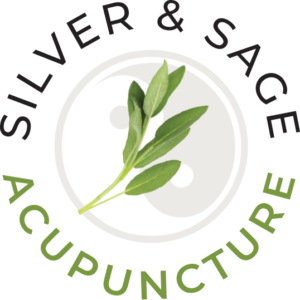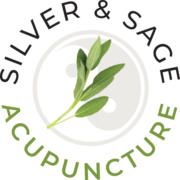Acupunture FAQ
What is Acupuncture?
Used successfully for over 3,000 years, Acupuncture is generally speaking our most powerful tool. It involves the insertion of extremely thin needles at strategic points along the Meridians of the body. Our other treatment modalities include nutrition and herbal therapy, tuina, cupping and gua sha.
Does Acupuncture Hurt?
It can be painless. There may be a sensation similar to a pinch, upon insertion of the needle that disappears quickly. A sensation of warmth, tingling, or numbness or heaviness may be felt after the insertion which is the sensation of Qi, a normal and beneficial part of treatment.
How Does Acupunture Work?
Chinese medicine(CM) is generally intent upon promoting balance in one’s body; often establishing balance between yin and yang. At its core, one’s vital energy, called Qi, flows throughout the entire body along meridians that connect to all of our major organs, much like the nervous system or the blood circulator system. According to Chinese medical theory, if this Qi is unbalanced or hindered, pain or disease develops in the meridians and possibly in the connected organ. Acupuncture encourages healing by needles placed in specific points in order to perfect the Qi flowing, unblocking or balancing it to restore one’s health. Western research has proven the healing efficacy of acupuncture, but has not been able to definitively describe how it works from a scientific standpoint. It is known that acupuncture needles create a signal from the peripheral nervous system to trigger a central nervous system (CNS) release of endorphins that naturally relieve pain and promote healing and a feeling of well-being.
Is Acupuncture Safe?
Acupuncture is a conservative and safe therapy. Thin, single-use sterile disposable needles. it is minimally invasive. Acupuncture uses the body’s own healing power to restore one’s health.
What if I’m terrified of needles?
Most people with a fear of needles will see that acupuncture is different. I will walk you through the entirety of the process, then you can decide if this is a possible option for you.
Can acupuncture be use along with Western Medicine?
Of course. Be sure that we know what pharmaceuticals and supplements you are taking, so that we can understand your symptoms and other presented physical signs.
What can I expect at an appointment?
Initial visits are usually an hour and more. The patient’s health history is discussed at length and his or her chief complaint will be addressed.
Wear something comfortable and loose fitting (sweat pants, tee shirt, etc.). Don’t brush your tongue that morning. And don’t eat or drink anything that might stain your tongue before your appointment.
Follow-ups will run an hour. Each treatment will be customized for the individual to address their specific health concerns that day.
How do I get the most out of a treatment?
Eat well that day, and please avoid caffeine and intense physical activity before or after your treatment.
What can acupuncture treat?
Acupuncture has broad application:
The World Health Organization (WHO) research finds it broadly useful:
Upper Respiratory System
- Acute sinusitis
- Acute rhinitis
- Common Cold and Flu
- Acute tonsillitis
- Respiratory System
- Acute bronchitis
- Bronchial asthma (Most effective in children and uncomplicated conditions.)
Eye Disorders
- Acute conjunctivitis
- Central Retinitis Myopia (in children)
- Cataracts (without complications)
Mouth Disorders
- Toothache
- Post Extraction Pain
- Gingivitis
- Acute and Chronic Pharyngitis
Gastrointestinal Disorders
- Spasms of esophagus
- Hiccough
- Acute and Chronic Gastritis
- Gastric Hyperacidity
- Chronic Duodenal Ulcer (pain relief)
- Acute Duodenal Ulcer (without complications)
- Acute and Chronic Colitis
- Acute Bacillary Dysentery
- Constipation
- Diarrhea
- Paralytic Ileus
Mental / Emotional Problems
- Stress
- Anxiety
- Depression
- Insomnia
Neurologic and Musculoskeletal Disorders
- Headache and Migraine
- Trigeminal Neuralgias
- Facial / Bells Palsy (best within 3-6 months
- Sequela of Stroke
- Peripheral Neuropathies
- Sequelae of Poliomyelitis within 6 months
- Meniere’s Disease
- Neurogenic Bladder Dysfunction
- Nocturnal Enuresis (bedwetting)
- Intercostal Neuralgia
- Cervicobrachial Syndrome
- Frozen Shoulder
- Sciatica
- Low Back Pain
- Osteoarthritis
- Carpal Tunnel Syndrome
- Back and Knee Pain
- Fibromyalgia
- Chronic Fatigue
- Sports Injuries and Pains
Reproductive & Gynecological Conditions
- Premenstrual Syndrome
- Dysmenorrhea (menstrual cramps)
- Spotting and Excessive Bleeding
- Amenorrhea (Loss of Menstrual Period)
- Impotence
- Infertility
- Incontinence
- Prostatitis
- The above was compiled by World Health Organization Interregional Seminar
[NIH, Acupuncture, Nov. 3–5, 1997, Vol. 15, No. 52. World Health Organization. Viewpoint on Acupuncture. Geneva, Switzerland: World Health Organization, 1979] The inclusion of specific diseases above cannot indicate the extent of acupuncture’s efficacy. The list is based on clinical experience and not necessarily on controlled clinical research.


